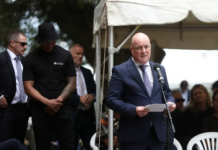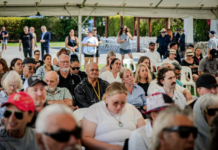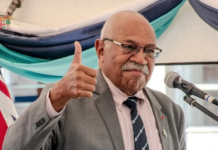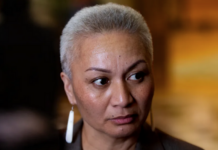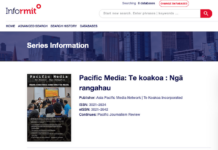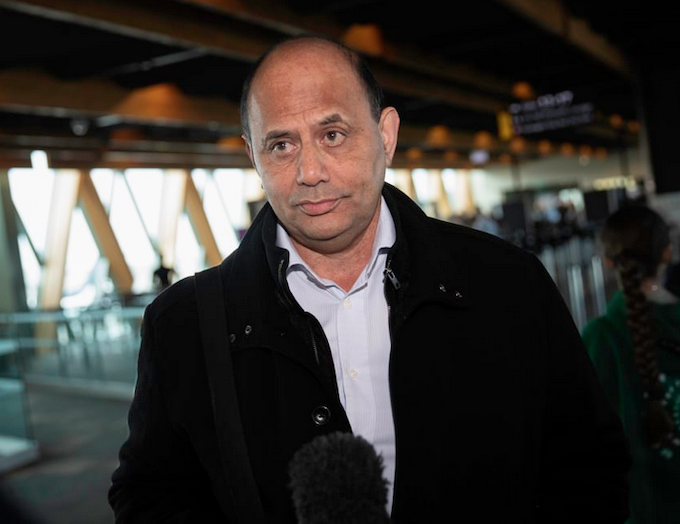
Former broadcasting minister Willie Jackson has defended Aotearoa New Zealand’s public interest journalism fund that his government started during the covid-19 pandemic, after the new deputy prime minister characterised it as “bribery”.
Speaking to media on Monday after his swearing in, Deputy Prime Minister Winston Peters accused state-funded media organisations of a lack of independence from the previous Labour government.
Peters was asked how quickly he expected government departments to take action on removing te reo Māori from their names.
- LISTEN TO RNZ MORNING REPORT: Journalism fund for media outlets all around the country – Willie Jackson
- Deputy Prime Minister Winston Peters attacks state-funded media independence
“Well, we’ll see the speed at which TVNZ and RNZ — which are taxpayer owned — understand this new message. We’ll see whether these people, both the media and journalists — are they independent?,” he said.
“Well, isn’t that fascinating, I’ve never seen evidence of that in the last three years.” he said.
He then laughed, and said “you can’t defend $55 million of bribery, cannot defend $55 million of bribery. Get it very clear”.
That last remark was a reference to the Public Interest Journalism Fund, a three-year $55m contestable fund for journalists initially set up to shore up public interest media during the covid-19 pandemic, which was wound up in July.
Media jobs, development funded
This included funding for 219 jobs and 22 industry development projects. Political coverage was exempted from eligibility to benefit from it. The fund was administered by NZ On Air.
Jackson, who became broadcasting minister in the Labour government two years after the fund was set up, said it was for media around the country, not just state-funded organisations.
“It was introduced during covid because it was a disastrous time in terms of media and we were pressured by good people out there to say, ‘hey, you support financial institutions so how about supporting local media that’s struggling’.”
It was aimed at supporting New Zealand media to keep producing public interest stories, he said and was “not just for RNZ and for TVNZ”.
“What you saw was a great investment in support of media outlets, Māori, Pasifika, regional [outlets] … Gisborne Herald, Otago Daily Times, Asburton Guardian, they got support and an opportunity to rebuild, reset.
“I’m very proud of what we did.”
Influence denied
He denied the then Labour government had any influence over the media as a result.
“The rules are very clear, we can’t interfere, we can’t intervene . . . You guys have to have your own independence.”
RNZ’s charter requires the broadcaster to be independent, including providing “reliable, independent, and freely accessible news and information”.
While the organisation is funded by the government, by law no ministers of the Crown or person acting on their behalf may give direction to RNZ relating to programming, newsgathering or presentation, or standards, and cannot have staff removed.
This article is republished under a community partnership agreement with RNZ.


